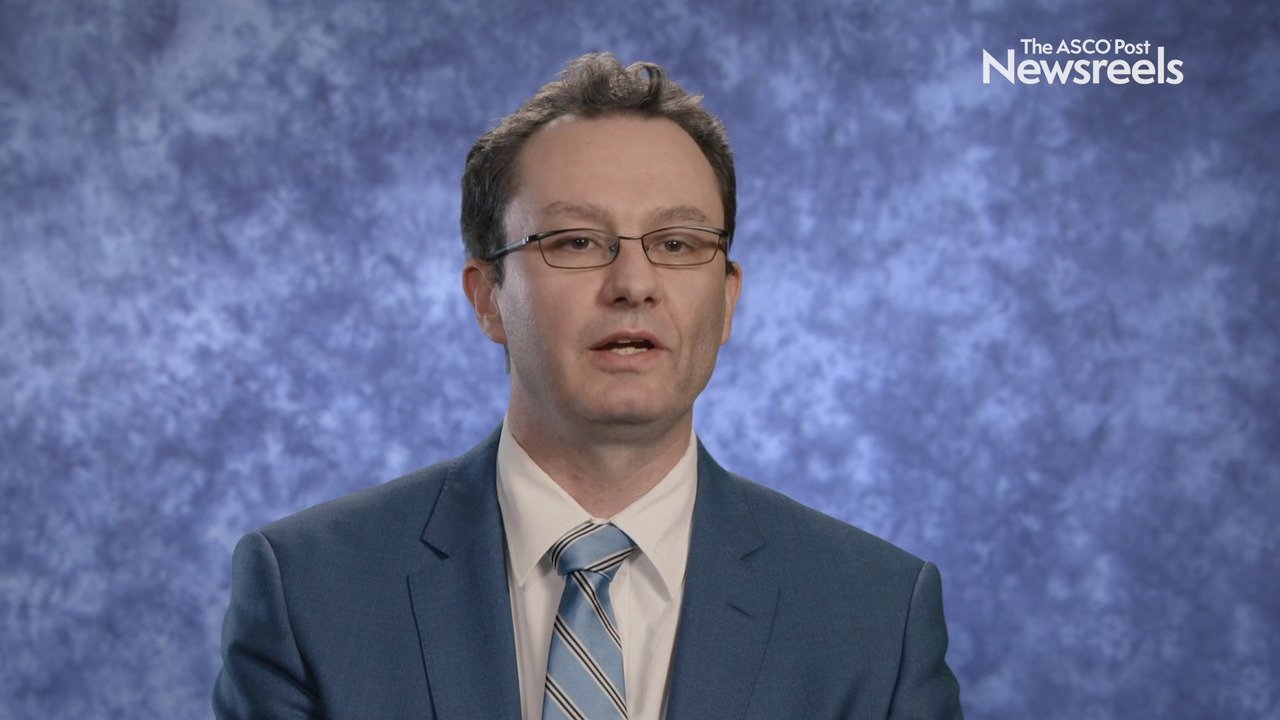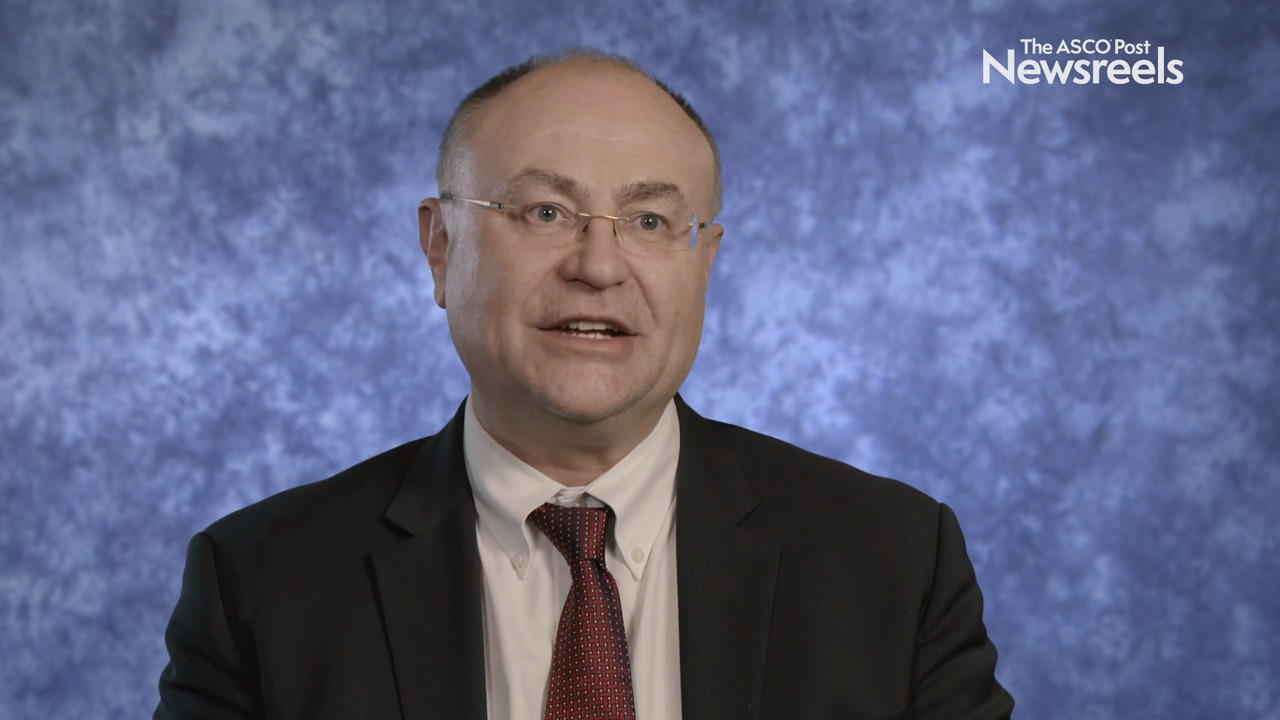Peter R. Galle, MD, on Atezolizumab/Bevacizumab vs Sorafenib for Hepatocellular Carcinoma: Patient-Reported Outcomes
2020 Gastrointestinal Cancers Symposium
Peter R. Galle, MD, of the University Medical Center, Mainz, discusses patient-reported outcomes from this phase III study, which showed the combination of atezolizumab plus bevacizumab vs sorafenib is well tolerated and may represent a new standard of care in the first-line setting for unresectable liver cancer (Abstract 476).
Brian M. Wolpin, MD, of Dana-Farber Cancer Institute, discusses a noninvasive blood test evaluating methylation of circulating free DNA. In his study, the blood test detected multiple gastrointestinal cancers at a sensitivity of approximately 81% and a prespecified specificity of > 99%. It also accurately localized the tissue of origin across more than 20 cancer types (Abstract 283).
Thomas Yau, MBBS, of the University of Hong Kong, discusses this triplet combination, which yielded better responses than doublet combination therapy in patients with advanced liver cancer, but with more severe adverse events and more treatment discontinuations (Abstract 478).
Thibaud Kössler, MD, PhD, of Geneva University Hospital, discusses the first trial to study the efficacy and safety of anti–PD-1 immunotherapy plus short-course radiotherapy in localized microsatellite-stable rectal cancer. The study explores whether a gene signature can predict sensitivity to immunotherapy (Abstract TPS272).
The ASCO Post Staff
Heinz-Josef Lenz, MD, of USC Norris Comprehensive Cancer Center, discusses how treating microsatellite instability–high/DNA mismatch repair–deficient metastatic colorectal cancer with nivolumab once every 2 weeks plus low-dose ipilimumab every 6 weeks may represent a new option for patients (Abstract 11).
Eileen M. O’Reilly, MD, of Memorial Sloan Kettering Cancer Center, discusses phase II trial findings showing that cisplatin and gemcitabine, with or without veliparib, exceeded a prespecified response rate for patients with pancreatic adenocarcinoma and a germline BRCA/PALB2 mutation (Abstract 639).





